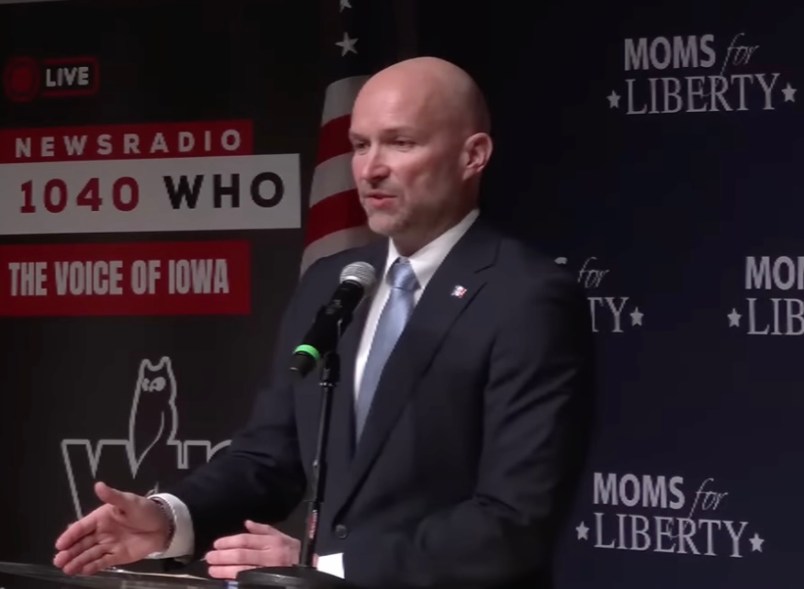
House Energy & Commerce Committee Republicans have begun their work of finding $880 billion in cuts to programs under the committee’s jurisdiction — which includes popular social safety nets like Medicare, Medicaid and Child Health Insurance Program (CHIP) — as House Republicans attempt to put together a reconciliation package.
For months now, congressional Republicans have been insisting that they won’t touch Medicare. If that holds true, a massive chunk of their targeted cuts will have to come from Medicaid. The Congressional Budget Office already put out a report in March to that effect, saying it won’t be possible to reach the goal in the House’s budget resolution without cuts to the program that provides health coverage for more than 70 million low income and disabled Americans.
Republicans have floated a handful of ways in which they can cut the cost of the program while effectively gutting Medicaid as we know it.
Aware of how unpopular cuts to Medicaid will be back home, vulnerable House Republicans have been loudly insisting they don’t want to consider options such as reducing federal funding for Medicaid expansion coverage, including reducing the federal match rate or implementing per capita caps.
But there is one option, among the many being considered, that even the most performatively anti-cut Republicans are saying they would go along with: Medicaid work requirements.
“I’m all for work requirements,” Sen. Josh Hawley (R-MO) told reporters on Wednesday as he walked down the tunnel connecting the Senate basement to the office buildings.
When asked about whether he would support exceptions to those work requirements, Hawley told TPM: “I need to see a specific proposal. But in general, I’m fine with work requirements.”
The Missouri Republican has been insisting for weeks that he will not support a reconciliation package that would “result in cutting benefits or denying eligibility for people who are otherwise working” or, as he has described it to reporters before, “for people who I think are qualified.”
Hawley is not the only congressional Republican who considers the implementation of work requirements a separate issue from slashing the program so many in his state depend on.
“They should be seeking the skill sets for better jobs,” Rep. Don Bacon (R-NE), who recently joined a group of House Republicans in saying he won’t support a reconciliation package that includes sweeping cuts to Medicaid, told HuffPost on Tuesday. “I think most Americans support this. If you’re an able-bodied adult with no children, you should be seeking the skills or seeking a better job.”
Attaching work requirements to entitlement programs has been a popular refrain among Republican lawmakers for decades.
But implementing Medicaid work requirements would actually lead to cuts to the widely used program, as eligible individuals would lose their healthcare coverage.
“Let’s be clear: Republicans’ so-called ‘work requirements’ are not about work at all — the reality is the vast majority of people on Medicaid who can work already do,”
Energy & Commerce Committee Ranking Member Frank Pallone (D-NJ) said in a Wednesday statement shared with TPM. “In fact, the nonpartisan Congressional Budget Office has found these burdensome red tape requirements do not increase employment at all … these requirements are not about jobs but are a cruel way for Republicans to take health care away from millions of people to give tax breaks to billionaires and corporations.”
Republicans Have Long Pushed For Medicaid Work Requirements
Most recently, some red states experimented with work requirements for Medicaid enrollment during President Trump’s first administration.
“We’ve seen from past experiences that work requirements are more effective at keeping people out of coverage than they are at increasing employment,” Allison Orris, Director of Medicaid Policy at the Center on Budget and Policy Priorities, told TPM.
In 2018, Arkansas implemented work requirements with exemptions under a waiver granted by the first Trump administration. The policy was applied for nine months, from June 2018 to February 2019, before it was halted by a court ruling.
Research has shown that the Arkansas policy reduced Medicaid enrollment and increased uninsurance among low-income adults. In the first seven months of Arkansas’ Medicaid work-reporting requirement, 18,000 people — one in four subject to the requirement — lost coverage.
On top of that, Orris told TPM: “What we saw in Arkansas was how exemptions on paper don’t actually protect people. More people lost coverage than had been projected because exemptions were not as foolproof.”
The number of enrollees Arkansas deemed non-compliant was much higher than the number of enrollees who did not qualify for an exemption or were not engaged in the implemented work requirements. Many lost coverage not because they were non compliant but simply due to red tape. Many faced challenges in fulfilling the state’s paperwork requirements and reporting the necessary information, experts told TPM.
And a recent Brookings report found “no evidence that the Arkansas requirement increased employment among the population subject to the policy.”
House Republicans also tried to include work requirements for Medicaid recipients between the ages 19 to 55 under their Limit, Save, Grow Act of 2023. That legislation failed to pass. But the Congressional Budget Office did estimate at the time that the policy would have led to around 1.5 million people losing their Medicaid benefits and hundreds of thousands being left uninsured in the process.
Implementing Work Requirements Is Expensive
Currently Georgia is the only state that imposes Medicaid work requirements. After a federal judge vacated the Biden Administration’s decision to revoke the Peach State’s Medicaid work requirements program the state began implementing its policy in July 2023.
The waiver program, called Pathways to Coverage, requires adults with low incomes to report at least 80 hours of work or volunteer activities each month as a condition of getting and keeping their coverage.
Orris told TPM that the work requirements have created strains, causing only a small fraction of eligible people to enroll in the program. Requiring work reporting at the time of application also makes the already complex application process more difficult, deterring eligible people from applying in the first place.
Energy & Commerce Committee Democrats released a report Thursday morning, to emphasize the point that despite Republicans’ claims that they will only cut “waste, fraud and abuse” from Medicaid, the burdensome red tape that come with work requirements would slash the program by allowing states to kick people off their Medicaid coverage in order to reduce spending.
House Speaker Mike Johnson (R-LA) said on Tuesday that no one will miss the hundreds of billions of dollars they want to slash from the program.
“We’re not gutting Medicaid. We’re going to reduce fraud, waste and abuse, which every single American should be applauding,” Johnson said.
But analysis shows, in Georgia, even though only a small fraction of eligible people have enrolled in the program, the program has cost about $13,360 per enrollee in the first year. That’s significantly higher than the initially estimated cost of about $2,490 per enrollee, according to the CBPP. About 35% of the spending went towards covering healthcare but a large chunk went to systems modifications to implement the new work reporting requirements.
“There’s an upfront and ongoing cost to states to implement work requirements,” Orris told TPM. “Their eligibility workers will need to be trained. They’ll need new systems. And so certainly, I think states that are looking at what Congress is considering should be thinking hard about how they would operationalize this kind of a policy and talking to their federal lawmakers about the challenges.”
Despite Republicans’ claims, work requirements would actually increase spending on operations while cutting people’s benefits.
“Republicans love to talk about ‘waste, fraud, and abuse,’ but these red tape requirements on Medicaid are leading to massive amounts of money being spent on wasteful administrative costs rather than health care,” Ranking Member Pallone said in a statement shared with TPM.




